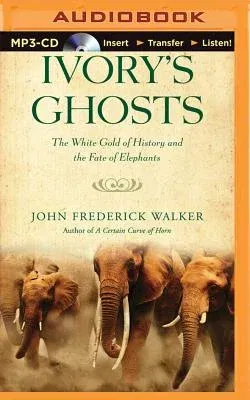Long before gold and gemstones held allure, humans were drawn to the
"jewels of the elephant" - its great tusks. Ivory is a supreme organic
treasure, prized throughout the world for its pale, lustrous beauty and
ability to be finely carved. In Ivory's Ghosts, John Frederick Walker
layers rich history and firsthand reportage to tell the fascinating and
sometimes savage story of ivory's enormous impact on both human history
and that of its most important source: the majestic African elephant.
Coveted since prehistory, ivory was the master carver's medium in
cultures from ancient Egypt to the industrializing United States. It was
used for sacred amulets, classical nudes, intricate Baroque sculptures,
Japanese netsuke, piano keys, and billiard balls. By the nineteenth
century ivory had become the plastic of its age, and a global addiction
drove the exploration and exploitation of Africa at immense human and
animal cost. Insatiable demand led to the wholesale slaughter of
elephants. By the 1980s, organized poaching reached record levels in
East Africa, provoking an international outcry that led to an ivory
trade ban still in effect today. Yet the ban has failed to stop
poaching - or end the bitter, emotional debate over what to do with the
legitimate and growing stockpiles of ivory from elephants that die of
natural causes. In Ivory's Ghosts, John Frederick Walker builds a
wrenching - and utterly compelling - argument that it is time to ask
whether a controlled return to the ivory trade could help, rather than
hurt, elephants. A richly detailed account of the troubled relationship
between material desire and environmental welfare, Ivory's Ghosts is a
deeply felt examination of both ivory's past and its uncertain future -
and the future of elephants themselves.

